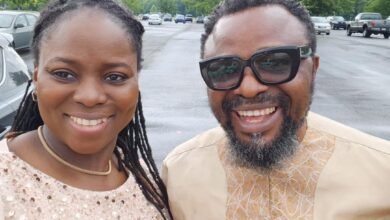Disruption! The Life to Which We Are All Called

Text:
Kò ì dé là rá ò gbà.
“You don’t know how strong you are until being strong is the only option.”
I’m the kind of person who achieves everything. My WhatsApp chats are backed up. My emails go back over ten years. I value documentation, not just for nostalgia, but because I believe memory matters.
But one day, everything vanished. A decade’s worth of emails stored on our company server disappeared, not just the inbox, but the backup too. When I called the IT manager in a panic, he muttered helplessly, “Sir, I pressed one button, and everything was gone.”
That moment felt like destruction, irrecoverable loss. But as the Yoruba say, “Kò ì dé là rá ò gbà.”
A few years later, my three-year-old son got hold of my phone and deleted nearly eight years of WhatsApp conversations. More recently, I was locked out of WhatsApp because I couldn’t remember my encryption key. My chats, backed up in the cloud, were visible, but unreachable. Disruptions, again.
Then came another disruption, not digital, but deeply human. I woke up one morning with a full to-do list and my day completely set. I had appointments lined up, tasks prioritized, everything was in order. But a single phone call shattered that order: one of my brothers had been rushed to the hospital with a sudden kidney issue.
What initially seemed like a passing illness quickly turned into a prolonged medical emergency. He couldn’t urinate or pass stool for days. For him, it was a total shutdown, body, dignity, life as he knew it. For me, it became the center of my days, emotionally, logistically, and financially. What began as a momentary interruption became weeks of disruption. By divine mercy, he was miraculously healed, but our lives had already been rerouted.
These may seem like isolated incidents, but they point to a deeper truth: life is defined by disruptions. To expect a life without them is to desire a life without adventure, growth, or faith.
Now in my mid-50s, I have lived long enough to know this: peace is not the absence of disruption, but the presence of understanding. We live in an imperfect world. No matter how strategic, prayerful, or prepared we are, we cannot anticipate every twist and turn. Hubris, the belief that we can predict it all, often humbles us.
Life is built on disruptions:
✅You sit for a university entrance exam several times, only to pivot to a diploma course as an alternative route.
✅You plan to get married by a certain age, but it doesn’t happen.
✅You desire children early, but wait 15 years into marriage before your first child arrives.
These are not signs of failure. These are disruptions.
Take astronaut Scott Kelly, for example. He planned to spend six months aboard the International Space Station but ended up staying 340 days as part of NASA’s Year in Space mission. The plan changed. His life and the lives of his loved ones had to adjust.




